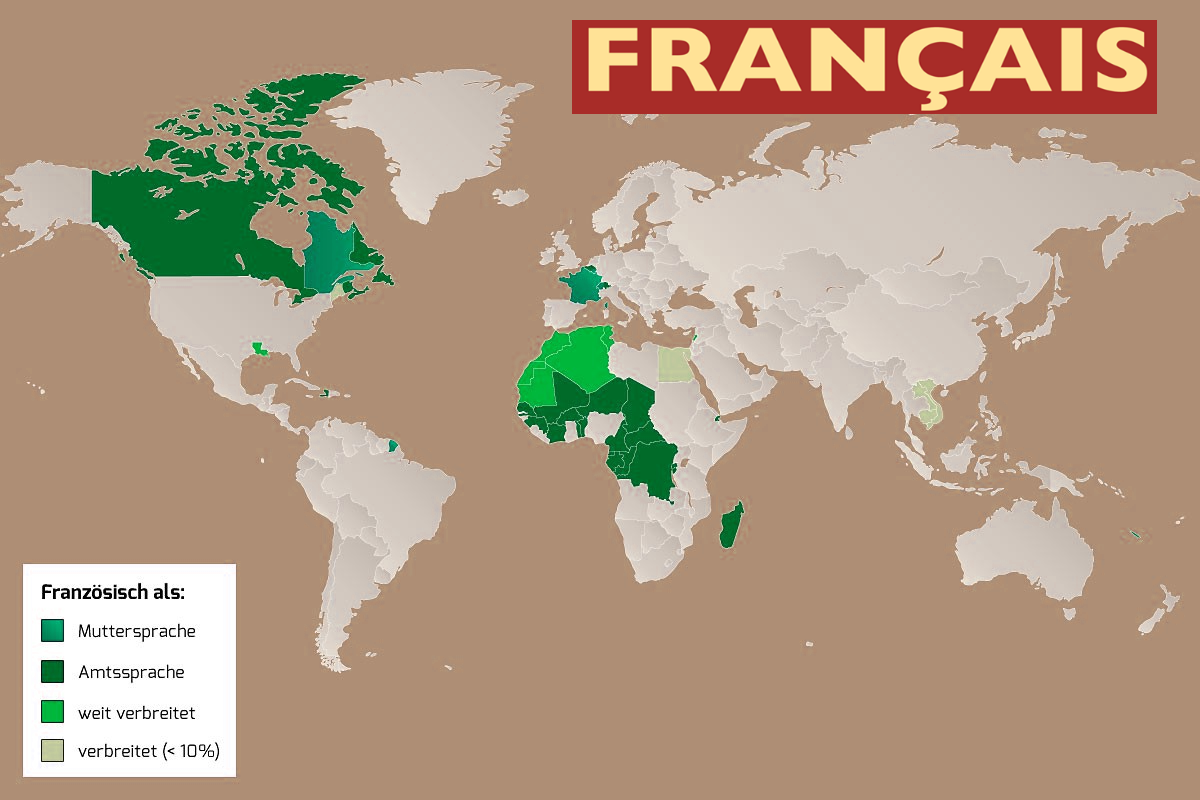
漢德百科全書 | 汉德百科全书
 United Nations
United Nations
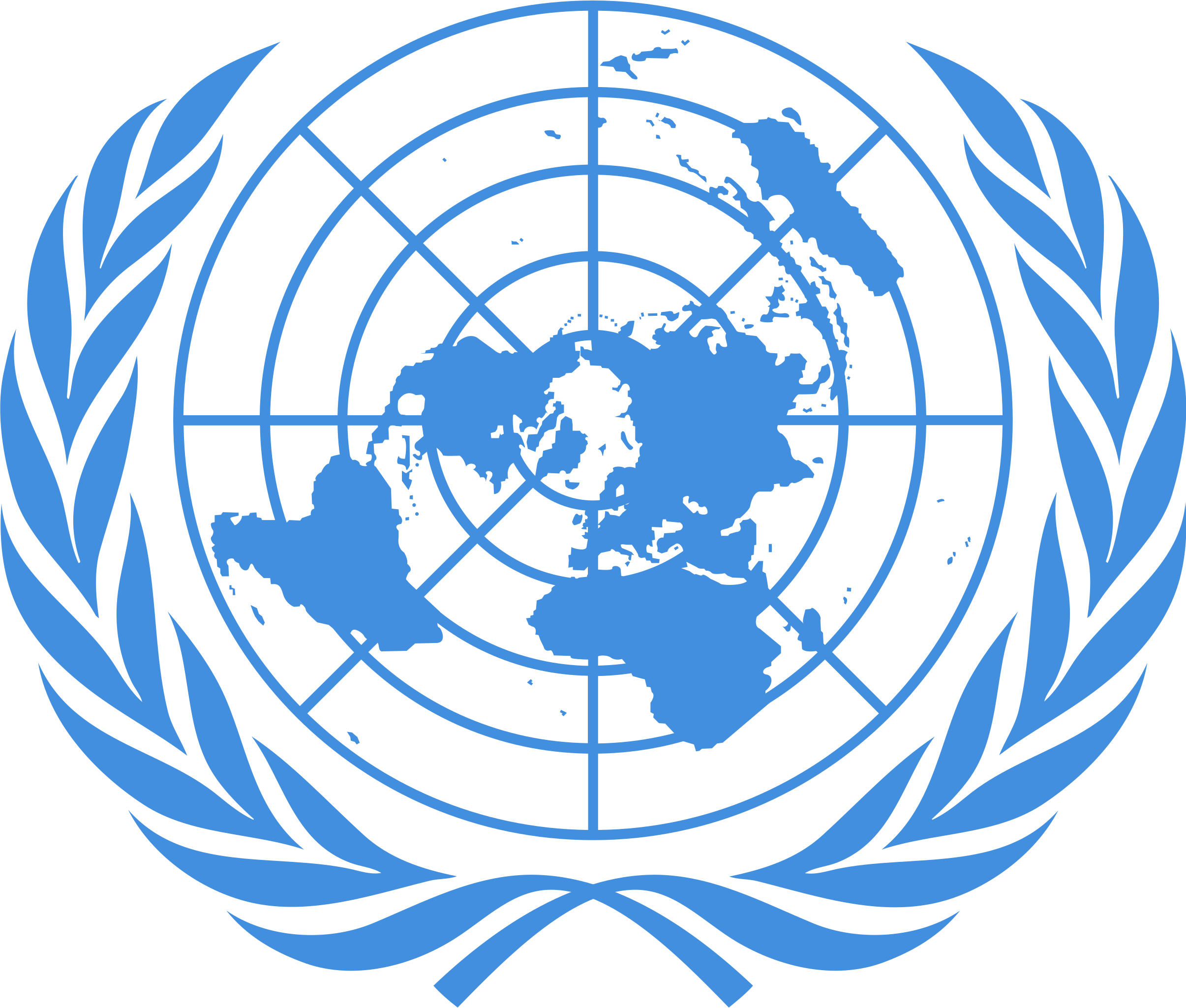
 Alexis Tsipras
Alexis Tsipras
 Angela Merkel
Angela Merkel

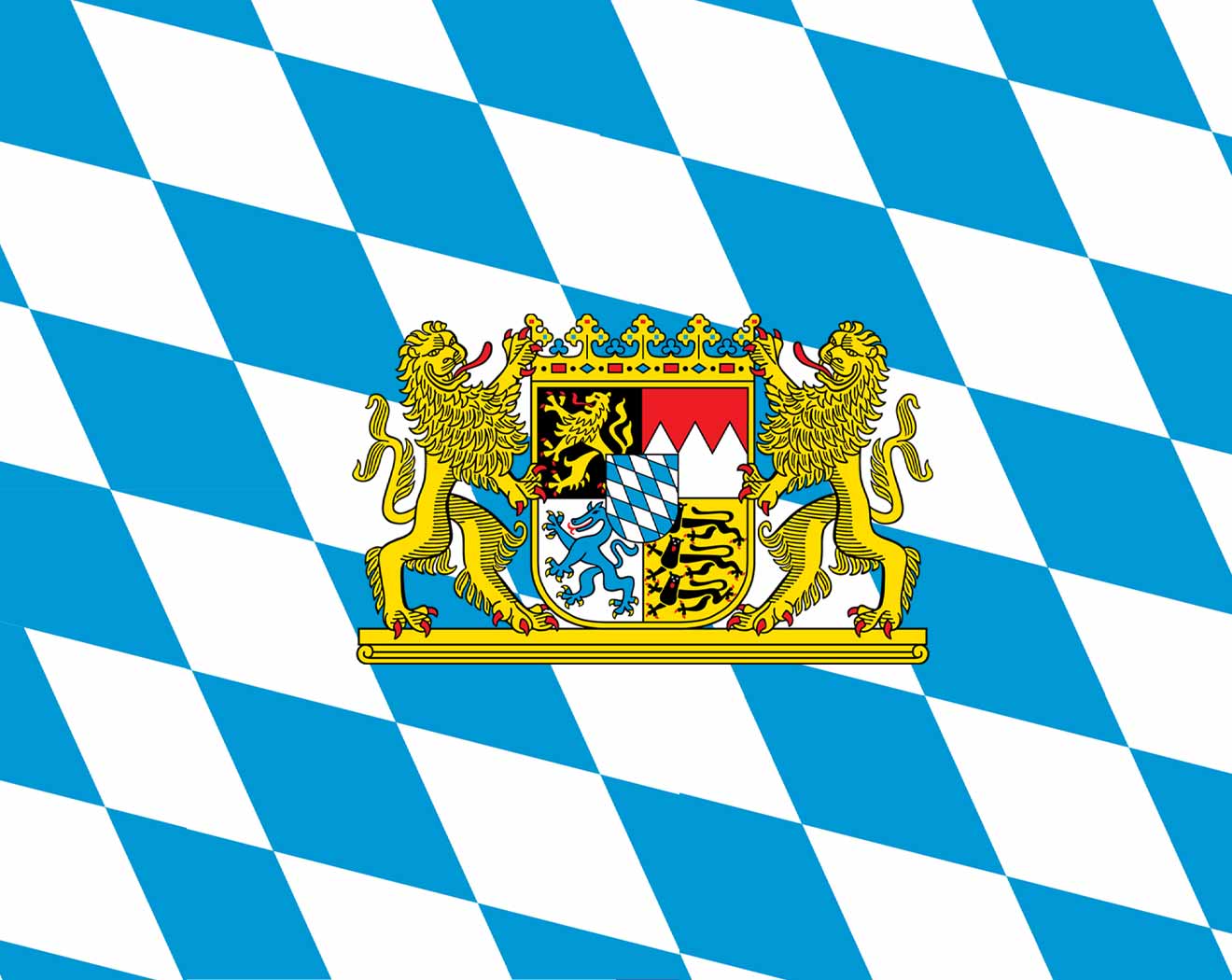 Bavaria
Bavaria
 Helmut Schmidt
Helmut Schmidt
 Javier Solana
Javier Solana
 Jens Stoltenberg
Jens Stoltenberg
 Joachim Gauck
Joachim Gauck
 Kofi Annan
Kofi Annan
 Organization for Security and Cooperation in Europe,OSCE
Organization for Security and Cooperation in Europe,OSCE

 Party and government
Party and government
 Valéry Giscard d’Estaing
Valéry Giscard d’Estaing

 United Nations
United Nations

 António Guterres
António Guterres

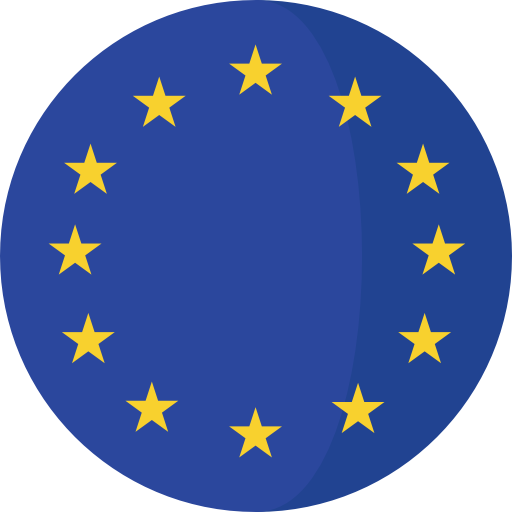 European Union
European Union
 Presidency of the Council of the European Union
Presidency of the Council of the European Union
 Generalsekretär der Vereinten Nationen
Generalsekretär der Vereinten Nationen
 António Guterres
António Guterres

 Party and government
Party and government
 *President or Chairman
*President or Chairman


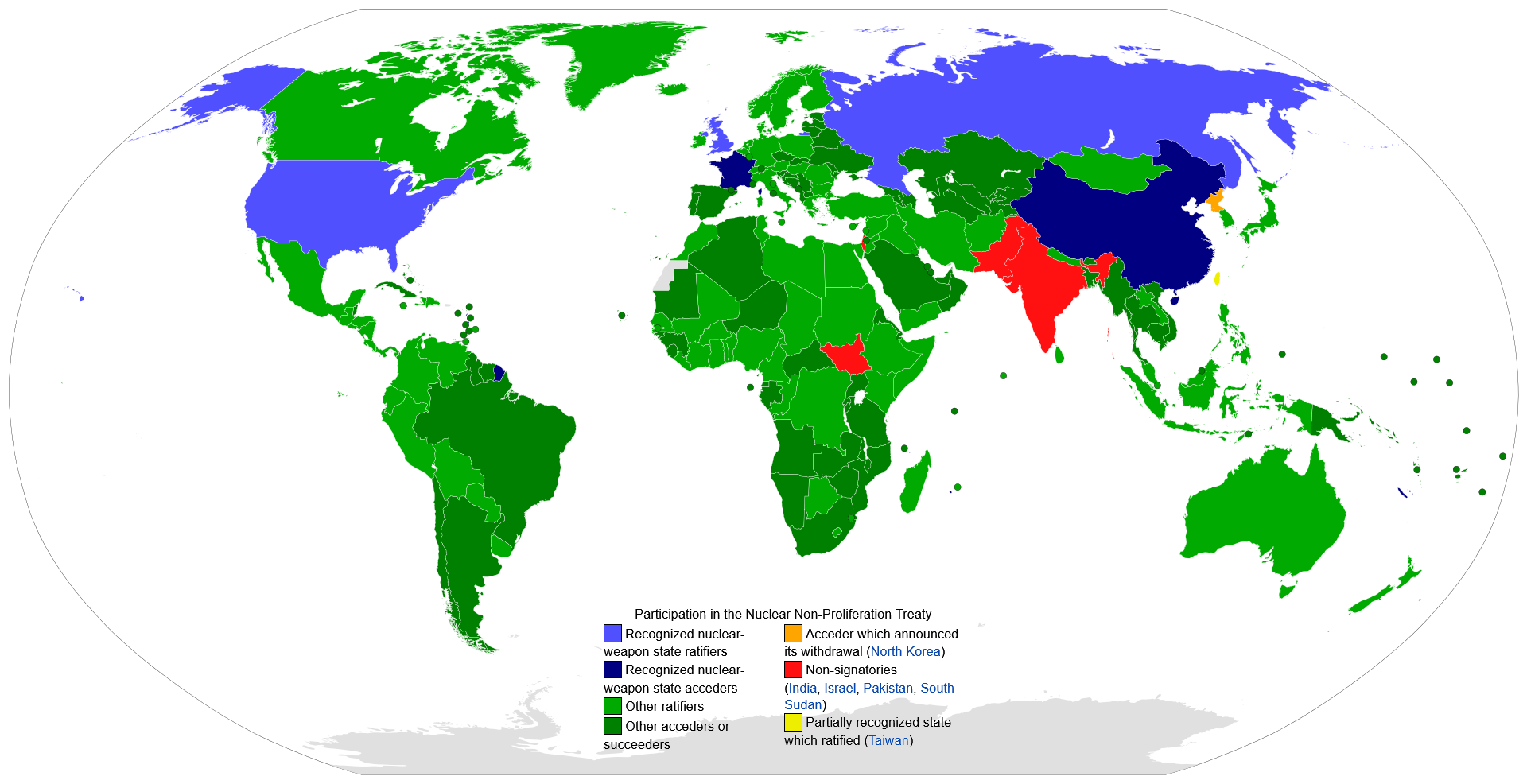
 Generalsekretär der Vereinten Nationen
Generalsekretär der Vereinten Nationen
 Boutros Boutros-Ghali
Boutros Boutros-Ghali

 United Nations
United Nations
 Secretary-General of the United Nations
Secretary-General of the United Nations


 Generalsekretär der Vereinten Nationen
Generalsekretär der Vereinten Nationen
 Dag Hjalmar Agne Carl Hammarskjöld
Dag Hjalmar Agne Carl Hammarskjöld

 United Nations
United Nations
 Secretary-General of the United Nations
Secretary-General of the United Nations

 *Track and field athletics
*Track and field athletics
 4x100 m Men
4x100 m Men
 *Track and field athletics
*Track and field athletics
 4x400 m Men
4x400 m Men
 Atomic bomb
Atomic bomb
 Commonwealth of Nations
Commonwealth of Nations

 Geography
Geography
 Leichtathletik-Weltmeisterschaften
Leichtathletik-Weltmeisterschaften
 2017 London
2017 London
 Leichtathletik-Weltmeisterschaften
Leichtathletik-Weltmeisterschaften
 1997 Athens
1997 Athens
 Leichtathletik-Weltmeisterschaften
Leichtathletik-Weltmeisterschaften
 1991 Tokyo
1991 Tokyo

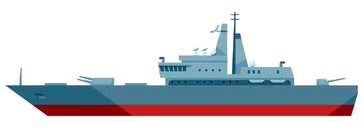
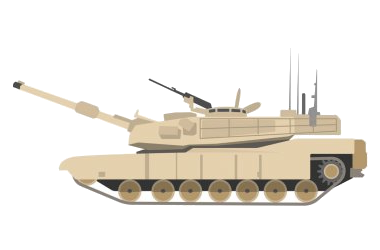
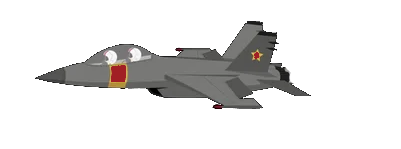
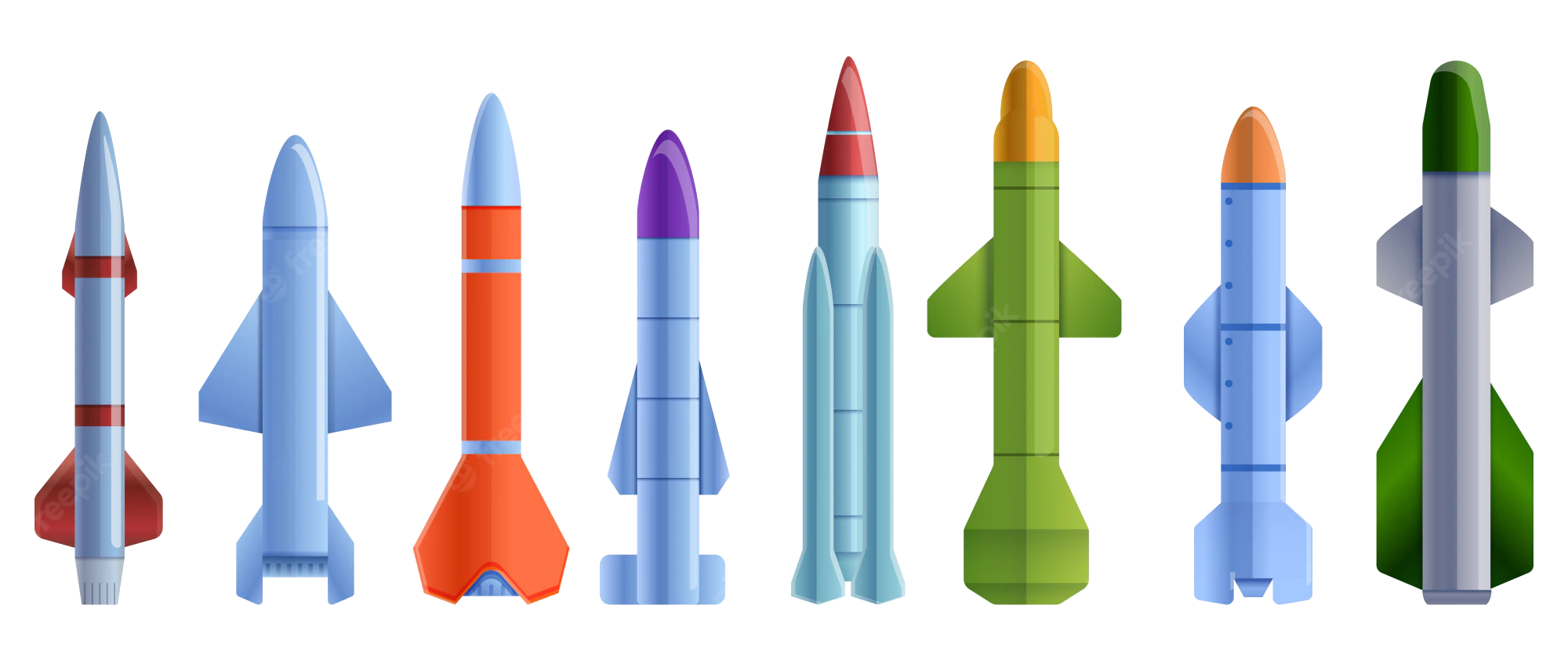 Military, defense and equipment
Military, defense and equipment
 Nuclear Weapon
Nuclear Weapon

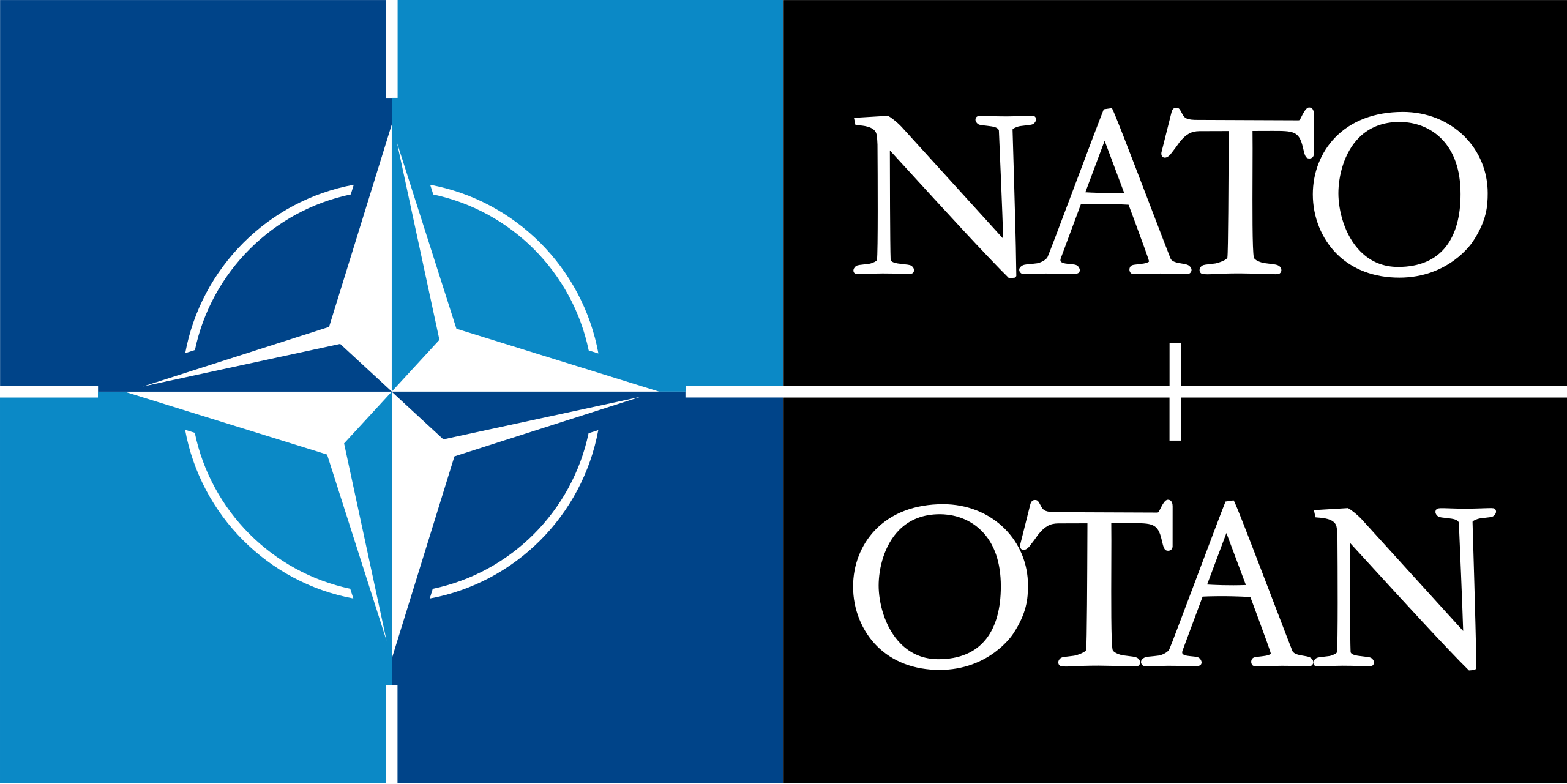 Mitglieder der NATO
Mitglieder der NATO

 Party and government
Party and government
 Group of the twenty most important industrial and emerging countries
Group of the twenty most important industrial and emerging countries

 Party and government
Party and government
 Group of Seven,G7
Group of Seven,G7

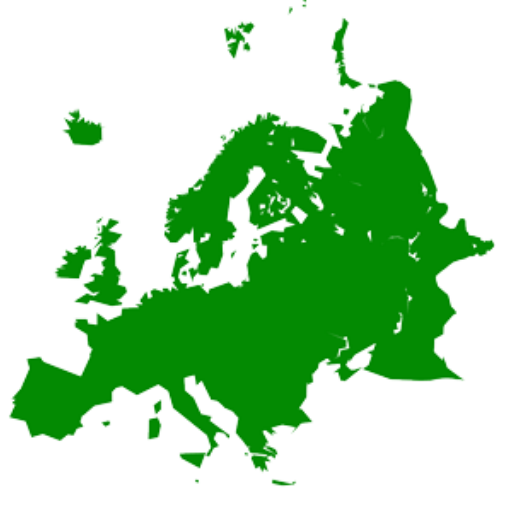 States of Europe
States of Europe

 United Nations
United Nations
 United Nations Security Council
United Nations Security Council
 Hydrogen bomb
Hydrogen bomb

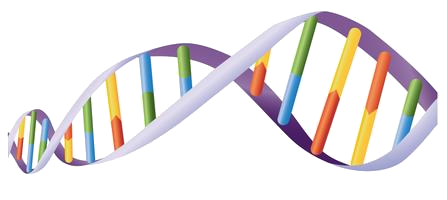 Science and technology
Science and technology

 Science and technology
Science and technology
 The first industrial revolution and its leaders and followers
The first industrial revolution and its leaders and followers



Das Vereinigte Königreich von Großbritannien und Nordirland (englisch ), kurz Vereinigtes Königreich (englisch [juːˌnaɪ̯.tʰɪd ˈkʰɪŋ.dəm], internationale Abkürzung: UK oder GB), ist ein auf den Britischen Inseln vor der Nordwestküste Kontinentaleuropas gelegener europäischer Staat und bildet den größten Inselstaat Europas.
Das Vereinigte Königreich ist eine Union aus den vier Landesteilen England, Wales, Schottland und Nordirland. Im täglichen Sprachgebrauch wird es auch schlicht als Großbritannien oder England bezeichnet. Jedoch stellt England in der eigentlichen Bedeutung nur den größten Landesteil dar, während Großbritannien die Hauptinsel der Britischen Inseln mit den Landesteilen England, Schottland und Wales bezeichnet.
Mit rund 66,4 Millionen Einwohnern[6] steht das Vereinigte Königreich unter den bevölkerungsreichsten Staaten Europas nach Russland und Deutschland an dritter Stelle. Es ist Gründungsmitglied der NATO sowie der Vereinten Nationen. Es ist Atommacht, ständiges Mitglied des UN-Sicherheitsrates und einer der G7-Staaten. Von 1973 bis 2020 war es Mitglied der EWG bzw. später der Europäischen Union.
大不列颠及北爱尔兰联合王国(英语:United Kingdom of Great Britain and Northern Ireland),国际间的标准简称为联合王国(英语:United Kingdom,缩写作UK)或者不列颠(英语:Britain),汉字文化圈通称“英国”[注 5][9][10](中文早期亦称“英联王国”[注 6]),是本土位于西欧并具有海外领地[注 7]的主权国家。英国位于欧洲大陆西北面,由大不列颠岛、爱尔兰岛东北部分及一系列较小岛屿组成[11]。英国和另一国家唯一的陆上国境线位于北爱尔兰,和爱尔兰共和国相邻[注 8]。英国由大西洋所环绕,东为北海,南为英吉利海峡,西南偏南为凯尔特海,与爱尔兰隔爱尔兰海相望。该国总面积达243,610平方千米(94,060平方英里),为世界面积第80大的主权国家及欧洲面积第11大的主权国家,人口约6636万,为全球第21名及欧洲第3名。
英国为君主立宪制国家,采用议会制进行管辖[12][13]。其首都伦敦为全球城市A++级别城市和国际金融中心,大都会区人口达1380万,为欧洲第三大[14]。现任英国君主为女王伊丽莎白二世,1952年2月6日即位。英国由四个构成国组成,分别为英格兰、苏格兰、威尔士和北爱尔兰[15],其中后三者在权力下放体系之下,各自拥有一定的权力[16][17][18]。三地首府分别为爱丁堡、加的夫和贝尔法斯特。附近的马恩岛、根西行政区及泽西行政区并非联合王国的一部分,而为皇家属地,英国政府负责其国防及外交事务[19]。
英国的构成国之间的关系在历史上经历了一系列的发展。英格兰王国通过1535年和1542年的联合法令将威尔士纳入领土。1707年联合法令使英格兰王国和苏格兰王国共组大不列颠王国,1801年大不列颠王国和爱尔兰王国共组大不列颠及爱尔兰联合王国。1922年爱尔兰中南部26个郡(面积占整个爱尔兰的约六分之五)脱离英国组成爱尔兰自由邦(当今爱尔兰的前身),最终造就了当今的大不列颠及北爱尔兰联合王国[注 9]。大不列颠及北爱尔兰联合王国亦有14块海外领地[20],为往日帝国的遗留部分。大英帝国在1921年达到其巅峰,拥有全球22%的领土,是有史以来面积最大的帝国。英国在语言、文化和法律体系上对其前殖民地保留了一定的影响,因而吸引许多以前英联邦的移民前来居住。
英国为发达国家,以名义GDP为量度是世界第五大经济体,以购买力平价为量度是世界第九大经济体。英国是世界首个工业化国家,工业革命使英国人的生产力大大提高,商业与财富极大的增长,更凭借著工业时代的船坚炮利,1763年—1945年英国为世界第一强国,其鼎盛时期的19世纪还被称作英国的世纪[21][22],当今英国仍是世界强国之一,在经济、文化、军事、科技、教育和政治上均有全球性的显著影响力[23][24]。英国为国际公认的有核国家,其军事开支位列全球第五[25][26]。1945年以来英国即为联合国安全理事会常任理事国。1973年—2020年英国是欧洲联盟(EU)及其前身欧洲经济共同体(EEC)的成员国。英国还是英联邦、欧洲委员会、七国财长峰会、七国集团、二十国集团、北大西洋公约组织、经济合作与发展组织和世界贸易组织成员国。
グレートブリテン及び北アイルランド連合王国(グレートブリテンおよびきたアイルランドれんごうおうこく、英: United Kingdom of Great Britain and Northern Ireland: UK)は、ヨーロッパ大陸の北西岸に位置し、グレートブリテン島・アイルランド島北東部・その他多くの島々から成る立憲君主制国家。首都はロンドン。日本語における通称の一例としてイギリス、英国(えいこく)がある(→#国名)。
イングランド、ウェールズ、スコットランド、北アイルランドという歴史的経緯に基づく4つの「カントリー(国)」が、同君連合型の単一の主権国家を形成している[1]。しかし、政治制度上は単一国家の代表的なモデルであり、連邦国家ではない。
国際連合安全保障理事会常任理事国の一国(五大国)であり、G7・G20に参加する。GDPは世界10位以内に位置する巨大な市場を持ち、ヨーロッパにおける四つの大国「ビッグ4」の一国である。ウィーン体制が成立した1815年以来、世界で最も影響力のある国家を指す列強の一つに数えられる。また、民主主義、立憲君主制など近代国家の基本的な諸制度が発祥した国でもある。
イギリスの擬人化としてはジョン・ブル、ブリタニアが知られる。
The United Kingdom of Great Britain and Northern Ireland, commonly known as the United Kingdom (UK or U.K.)[14] or Britain,[note 10] is a sovereign country located off the northwestern coast of the European mainland. The United Kingdom includes the island of Great Britain, the northeastern part of the island of Ireland, and many smaller islands.[15] Northern Ireland shares a land border with the Republic of Ireland. Otherwise, the United Kingdom is surrounded by the Atlantic Ocean, with the North Sea to the east, the English Channel to the south and the Celtic Sea to the southwest, giving it the 12th-longest coastline in the world. The Irish Sea separates Great Britain and Ireland. The total area of the United Kingdom is 94,000 square miles (240,000 km2).
The United Kingdom is a unitary parliamentary democracy and constitutional monarchy.[note 11][16][17] The monarch is Queen Elizabeth II, who has reigned since 1952, making her the world's longest-serving current head of state.[18] The United Kingdom's capital is London, a global city and financial centre with an urban area population of 10.3 million.[19]
The United Kingdom consists of four countries: England, Scotland, Wales and Northern Ireland.[20] Their capitals are London, Edinburgh, Cardiff and Belfast, respectively. Apart from England, the countries have their own devolved governments,[21] each with varying powers.[22][23] Other major cities include Birmingham, Glasgow, Leeds, Liverpool, and Manchester.
The nearby Isle of Man, Bailiwick of Guernsey and Bailiwick of Jersey are not part of the UK, being Crown dependencies with the British Government responsible for defence and international representation.[24] The medieval conquest and subsequent annexation of Wales by the Kingdom of England, followed by the union between England and Scotland in 1707 to form the Kingdom of Great Britain, and the union in 1801 of Great Britain with the Kingdom of Ireland created the United Kingdom of Great Britain and Ireland. Five-sixths of Ireland seceded from the UK in 1922, leaving the present formulation of the United Kingdom of Great Britain and Northern Ireland. The UK's name was adopted in 1927 to reflect the change.[note 12] There are fourteen British Overseas Territories,[25] the remnants of the British Empire which, at its height in the 1920s, encompassed almost a quarter of the world's landmass and was the largest empire in history. British influence can be observed in the language, culture and political systems of many of its former colonies.[26][27][28][29][30] The United Kingdom has the world's sixth-largest economy by nominal gross domestic product (GDP), and the ninth-largest by purchasing power parity (PPP). It has a high-income economy and a very high human development index rating, ranking 14th in the world. It was the world's first industrialised country and the world's foremost power during the 19th and early 20th centuries.[31][32] The UK remains a great power, with considerable economic, cultural, military, scientific and political influence internationally.[33][34] It is a recognised nuclear weapons state and is sixth in military expenditure in the world.[35] It has been a permanent member of the United Nations Security Council since its first session in 1946.
The United Kingdom is a leading member of the Commonwealth of Nations, the Council of Europe, the G7, the G20, NATO, the Organisation for Economic Co-operation and Development (OECD), Interpol and the World Trade Organization (WTO). It was a member of the European Union (EU) and its predecessor, the European Economic Community (EEC), for 47 years, between 1 January 1973 and withdrawal on 31 January 2020.
Le Royaume-Uni (prononcé en français : /ʁwajom‿yni/a Écouter), en forme longue le Royaume-Uni de Grande-Bretagne et d'Irlande du Nordb (en anglais : United Kingdom /juːˌnaɪtɪd ˈkɪŋdəm/c Écouter et United Kingdom of Great Britain and Northern Ireland)d, est un pays d'Europe de l'Ouest, ou selon certaines définitions, d'Europe du Nord, dont le territoire comprend l'île de Grande-Bretagne et la partie nord de l'île d'Irlande, ainsi que de nombreuses petites îles autour de l'archipel. Le territoire du Royaume-Uni partage une frontière terrestre avec la république d'Irlande, et est entouré par l'océan Atlantique au nord, la mer du Nord à l'est, la Manche au sud, la mer Celtique au sud-sud-ouest, la mer d'Irlande au sud-ouest et les mers intérieures de la côte ouest de l'Écosse au nord-ouest. Le Royaume-Uni couvre une superficie de 246 690 km2, faisant de lui le 80e plus grand pays du monde, et le 11e d'Europe. Il est le 22e pays plus peuplé du monde, avec une population estimée à 65,1 millions d'habitants. Le Royaume-Uni est une monarchie constitutionnelle7 ; il possède un système parlementaire de gouvernance8,3. Sa capitale est Londres, une ville mondiale et la première place financière au monde.
Le Royaume-Uni est composé de quatre nations constitutives : l'Angleterre, l'Écosse, le pays de Galles et l'Irlande du Nord. Les trois dernières ont des administrations dévolues9, chacune avec des pouvoirs variés10, basés dans leurs capitales régionales, respectivement Édimbourg, Cardiff et Belfast. Les bailliages de Guernesey, de Jersey et l'île de Man sont des dépendances de la Couronne et ne sont donc pas rattachés au pays11. De plus, le pays comprend quatorze territoires d'outre-mer12, disséminés sur plusieurs océans. Le Royaume-Uni est né en 1707, lorsque les royaumes d'Angleterre et d'Écosse s'unifièrent pour former le royaume de Grande-Bretagne, qui s'agrandit en 1801 en s'unifiant avec le royaume d'Irlande pour former le Royaume-Uni de Grande-Bretagne et d'Irlande. En 1922, l'Irlande du Sud fit sécession du Royaume-Uni, donnant naissance à l'État d'Irlande, amenant au nom officiel et actuel de « Royaume-Uni de Grande-Bretagne et d'Irlande du Nord ». Les territoires d'outre-mer, anciennement des colonies, sont les vestiges de l'Empire britannique, qui, jusqu'à la seconde moitié du XXe siècle, était le plus vaste empire colonial de l'histoire.
L'influence britannique peut être observée dans la langue, la culture, le système politique et juridique des anciennes colonies. Le Royaume-Uni est un pays développé. Il est en 2018 la cinquième puissance mondiale par son PIB nominal13 et la neuvième puissance en termes de PIB à parité de pouvoir d'achat. Berceau de la révolution industrielle, le pays fut la première puissance mondiale durant la majeure partie du XIXe siècle14,15. Le Royaume-Uni reste une grande puissance, avec une influence internationale considérable sur le plan économique, politique, culturel, militaire et scientifique16,17. Il est également une puissance nucléaire reconnue avec le sixième budget de la défense le plus élevé18. Le Royaume-Uni est membre du Commonwealth, du Conseil de l'Europe, du G7, du G20, de l'OTAN, de l'OCDE, de l'OMC, et membre permanent du Conseil de sécurité des Nations unies depuis 1946. Le Royaume-Uni a adhéré le 1er janvier 1973 à la CEE, devenue Union Européenne, puis en est sorti le 1er février 2020 à la suite de la victoire du «
 *Track and field athletics
*Track and field athletics
 4x400 m Woman
4x400 m Woman
 *Track and field athletics
*Track and field athletics
 4x100 m Woman
4x100 m Woman
 Atomic bomb
Atomic bomb
 BRICS summit
BRICS summit

 History
History
 M 1500 - 2000 AD
M 1500 - 2000 AD

 History
History

 History
History
 N 2000 - 2100 AD
N 2000 - 2100 AD
 Leichtathletik-Weltmeisterschaften
Leichtathletik-Weltmeisterschaften
 2005 Helsinki
2005 Helsinki
 Leichtathletik-Weltmeisterschaften
Leichtathletik-Weltmeisterschaften
 1999 Seville
1999 Seville
 Leichtathletik-Weltmeisterschaften
Leichtathletik-Weltmeisterschaften
 1993 Stuttgart
1993 Stuttgart




 Military, defense and equipment
Military, defense and equipment
 Nuclear Weapon
Nuclear Weapon

 Party and government
Party and government
 Group of the twenty most important industrial and emerging countries
Group of the twenty most important industrial and emerging countries

 Party and government
Party and government
 BRICS
BRICS
 Russia
Russia
 Silk road
Silk road
 Shanghai Cooperation Organization
Shanghai Cooperation Organization

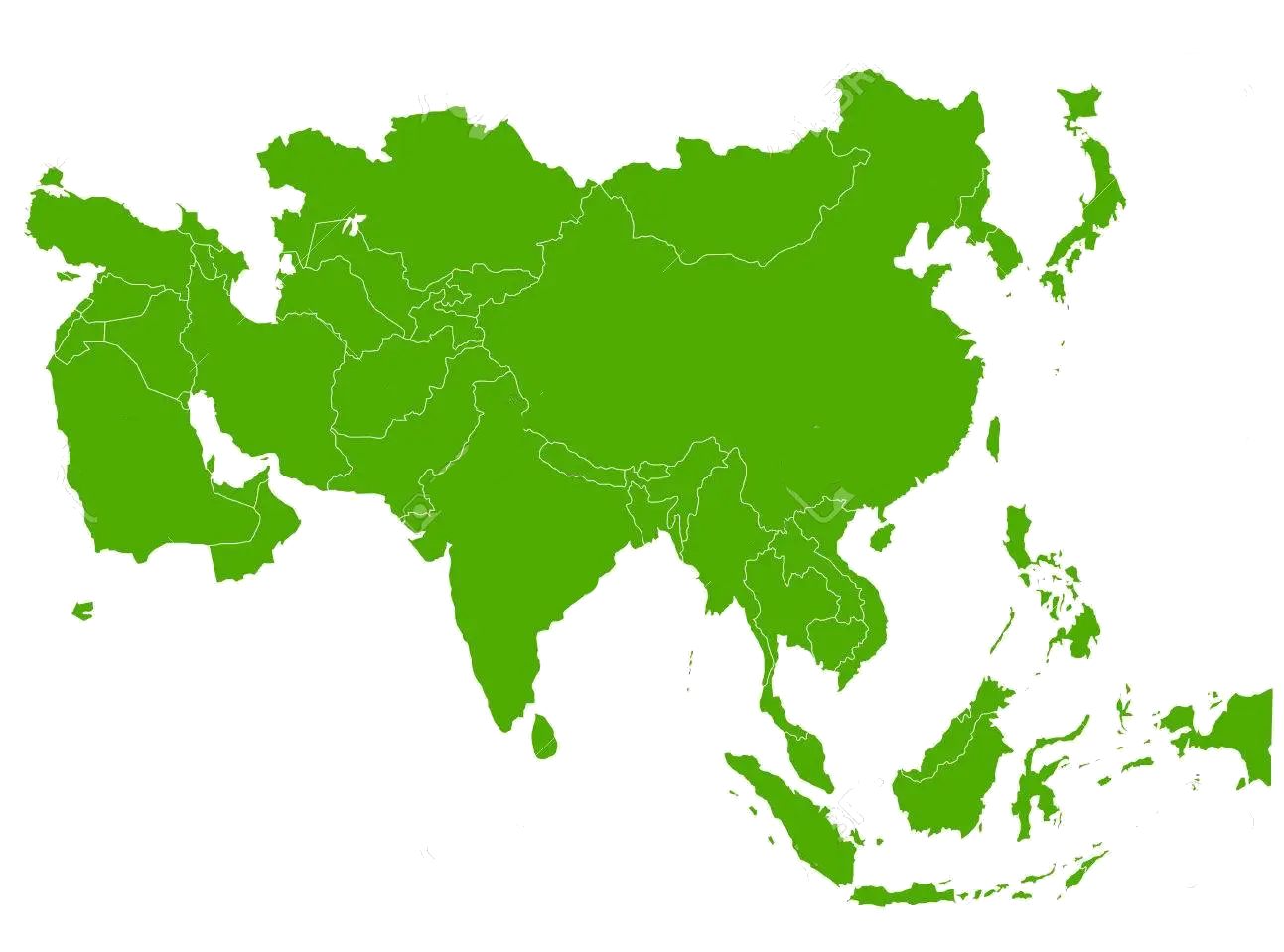 States of Asia
States of Asia

 States of Europe
States of Europe

 United Nations
United Nations
 United Nations Security Council
United Nations Security Council
 Hydrogen bomb
Hydrogen bomb
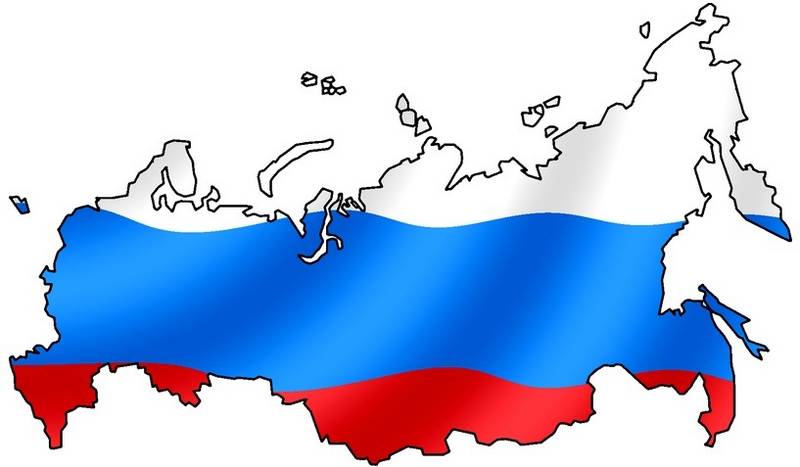
Russland (russisch Россия [rɐˈsʲijə] , Transkription Rossija) bzw. die Russische Föderation (oder der russischen Bezeichnung entsprechend Russländische Föderation; russisch Российская Федерация, , Transkription Rossijskaja Federazija)[9] ist ein souveräner, föderativer Staat im nordöstlichen Eurasien und mit etwa 17 Millionen Quadratkilometern flächenmäßig der größte Staat der Erde. Russland umfasst mehr als ein Achtel der bewohnten Landmasse der Erde und steht mit 144 Millionen Einwohnern (2017) an 9. Stelle der bevölkerungsreichsten Länder; es ist zugleich eines der am dünnsten besiedelten. Der europäische Teil des Staatsgebiets ist viel dichter besiedelt und verstädtert als der über dreimal so große asiatische Teil: Etwa 77 % der Bevölkerung (110 Millionen Einwohner) leben westlich des Urals. Die Hauptstadt Moskau ist eine der größten Städte und Metropolregionen der Welt; als weiteres wichtiges Zentrum gilt Sankt Petersburg, das zwischen 1712 und 1918 Hauptstadt war und eine Brücke für Kunst und Kultur aus Westeuropa bildete.
Die nächstgrößeren Millionenstädte Russlands sind Nowosibirsk in Sibirien, Jekaterinburg im Ural und Nischni Nowgorod an der Wolga. Weitere Großstadtregionen sind Tscheljabinsk, Ufa und Kasan.
Das heutige Russland entwickelte sich aus dem Großfürstentum Moskau, einem Teilfürstentum des früheren ostslawischen Reiches Kiewer Rus, zu einem über einhundert Ethnien zählenden Vielvölkerstaat, wobei ethnische Russen heute fast 80 Prozent der Bevölkerung ausmachen. Die föderale Gliederung Russlands besteht aus acht Föderationskreisen und 85 Föderationssubjekten.
Die Russische Föderation ist „Fortsetzerstaat“[10] der Sowjetunion in internationalen Organisationen, Atommacht und ständiges Mitglied des Weltsicherheitsrates. Nach der Erholung von der postkommunistischen Transformationskrise der 1990er Jahre wurde Russland die nach Kaufkraftparität sechstgrößte Volkswirtschaft der Welt, zwischen Deutschland und Brasilien (Schätzung für 2016).[11]
Russlands Rohstoffreserven sind mit etwa 20 bis 30 % die wahrscheinlich größten der Welt,[12][13][14] mit erheblichen Vorkommen von Primärenergieträgern, vor allem Erdgas.
Russland gehört zu den anerkannten Nuklearmächten und besitzt das weltgrößte Arsenal an Massenvernichtungswaffen. Russland ist Großmacht und Regionalmacht und wird teilweise als potentielle Supermacht betrachtet.[15] Es ist ständiges Mitglied im Sicherheitsrat der Vereinten Nationen, G 20-Mitglied, Mitglied des Europarates, der APEC, der Shanghaier Organisation für Zusammenarbeit (SCO), der OSCE, der WTO; es ist führendes Mitglied in der Gemeinschaft Unabhängiger Staaten (GUS), der Organisation des Vertrags über kollektive Sicherheit (OVKS) und der Eurasischen Wirtschaftsunion (mit Armenien, Kasachstan, Kirgisistan und Weißrussland).
Russland ist ein Schwellenland im Bereich des oberen mittleren Einkommens.[16] Im Human Development Index der Vereinten Nationen stand Russland 2016 mit 0,8 (von 1) auf Platz 49,[17] der Gini-Koeffizient lag bei 37,7.
Das Regierungssystem Russlands wird von Politikwissenschaftlern entsprechend dem Wortlaut der Verfassung meist formal als Verbindung präsidentieller und parlamentarischer Formen eingeordnet; die Verfassungswirklichkeit des politischen Systems entspricht jedoch eher den Modellen defekter Demokratien oder der Postdemokratie, zumal der Präsident fast autokratische Macht ausübt.[18][19][20] Für die politische Ordnung wird in Russland gelegentlich von offizieller Seite der Begriff „Gelenkte Demokratie“ im affirmativen Sinne gebraucht.[21]
Die Annexion der Krim im März 2014 belastet die Beziehungen zwischen Russland und dem Westen. Der russischen Regierung wird vorgeworfen, die europäische Friedensordnung zu verletzen.[22]
Das Land war 2016 mit 69,9 Mrd. Dollar für 4,1 % der weltweiten Militärausgaben verantwortlich und liegt damit im internationalen Vergleich hinter den Vereinigten Staaten mit 611 Mrd. Dollar (36 %) und China mit 215 Mrd. Dollar (13 %) auf Platz 3, gefolgt von Saudi-Arabien und Indien.[23][24]
俄罗斯联邦[9](俄语:Российская Федерация,缩写为РФ),通称俄罗斯(Россия)[10],是位于欧亚大陆北部的联邦共和国,国土横跨欧亚两大洲,为世界上土地面积最大的国家,拥有1709万平方公里的面积,占地球陆地面积八分之一[11][12];它也是世界上第九大人口国家,拥有1.4亿人口,77%居住于其较为发达的欧洲部分。俄罗斯国土覆盖整个亚洲北部及东欧大部,横跨11个时区,涵盖广泛的环境和地形。拥有全世界最大的森林储备和含有约世界四分之一的淡水的湖泊[13]。俄罗斯有十四个陆上邻国(从西北方向起逆时针序):挪威、芬兰、爱沙尼亚、拉脱维亚、立陶宛、波兰、白俄罗斯、乌克兰、格鲁吉亚、阿塞拜疆、哈萨克斯坦、中国、蒙古和朝鲜(其中立陶宛和波兰仅与俄罗斯外飞地加里宁格勒州接壤),另外与阿布哈兹和南奥塞梯两个只有俄罗斯承认的非联合国会员国接壤。同时,俄罗斯还与日本、美国、加拿大、格陵兰(丹麦)、冰岛、瑞典、土耳其隔海相望。俄罗斯北部和东部分别为北冰洋和太平洋包围,西北和西南则分别可经由波罗的海和黑海通往大西洋。
俄罗斯历史始于欧洲的东斯拉夫民族,聚集区域自公元3世纪至8世纪逐渐扩大[14]。在9世纪,源自北欧的瓦良格人武士精英建立了基辅罗斯这个中世纪国家并开始统治。公元988年,国家从拜占庭帝国采纳了东正教会,随后由此开始,千年拜占庭与斯拉夫文化的融合成为了今日的俄罗斯文化[15]。基辅罗斯最终解散分化为众多公国,被蒙古人逐一击破,并均在13世纪成为了金帐汗国的一部分。莫斯科大公自14世纪起逐渐崛起并统一周边俄罗斯诸侯国,在15世纪成功从金帐汗国独立,且成为了基辅罗斯文化和政治的继承者。16世纪起伊凡四世自称沙皇,自诩“第三罗马”。在18世纪,俄罗斯沙皇国通过征服、吞并和探索而扩张。彼得一世称帝成立了俄罗斯帝国,最终成为史上领土第三大帝国,疆域最大曾自中欧的波兰连绵至北美的阿拉斯加[16][17]。
1917年俄国革命后,俄罗斯苏维埃联邦社会主义共和国成为了世界上第一个宪法意义上的社会主义国家[18],并成为随后成立的苏维埃社会主义共和国联盟的主体和其最大的加盟共和国。二战时期,苏联为同盟国的胜利扮演了决定性的角色。在战后其崛起成为公认的超级大国,并在冷战时期与美国互相竞争。苏联时期产生了20世纪的许多最重要的科技成就,其中包括世界第一颗人造地球卫星,以及首次将人类送入太空。在1990年,苏联为世界上第二大经济体[19],且拥有世界上最多的常备军人以及最多的大规模杀伤性武器库存。1991年苏联解体后,包括俄罗斯在内的15个共和国从原苏联独立;身为原苏联最大的加盟共和国,俄罗斯通过修宪改制为俄罗斯联邦,成为原苏联的唯一法理继承国家,政体采用联邦制、民主共和制及半总统制。
截至2015年,俄罗斯根据国民生产总值为世界第13大经济体,根据购买力平价为世界第六大经济体。俄罗斯拥有世界上最大储量的矿产和能源资源[20],是世界上最大的石油和天然气输出国[21][22]。俄罗斯为世界大国之一,为认定的拥核国家,联合国安理会常任理事国,G20、欧洲理事会、亚太经合组织、上合组织、欧安组织、世贸组织和金砖国家成员。它也是独联体、集体安全条约组织的领导者和欧亚经济联盟创始成员。俄罗斯亦是世界八大工业国之一。
ロシア連邦(ロシアれんぽう、ロシア語: Российская Федерация:英語名 Russian Federation)、またはロシア (Россия) は、ユーラシア大陸北部にある共和制及び連邦制国家。
地理的にロシアの国境は、北西から南東へ、ノルウェー、フィンランド、エストニア、ラトビア、リトアニアおよびポーランド(ともにカリーニングラード州と隣接)、ベラルーシ、ウクライナ、ジョージア、アゼルバイジャン、カザフスタン、中華人民共和国、モンゴル国、朝鮮民主主義人民共和国と接する。海上境界線としては、日本とはオホーツク海・宗谷海峡・根室海峡・珸瑤瑁水道、アメリカ合衆国とはベーリング海峡でアラスカ州と接する。ロシアの面積は17,075,400km2で世界最大であり、地球上の居住地域の8分の1を占める。2012年時点で、ロシアの人口は1億4300万人で世界第9位である[3]。国土は北アジア全体および東ヨーロッパの大部分に広がることに伴い、ロシアは11の標準時を有し、広範な環境および地形を包含する。
ロシアの歴史は、3世紀から8世紀までの間にヨーロッパで認識され始めた東スラヴ人の歴史に始まる[4]。9世紀、ヴァリャーグの戦士の精鋭およびその子孫により設立及び統治されて、キエフ大公国の中世国家が誕生した。988年、東ローマ帝国から正教会を導入し、次の千年紀のロシア文化を特徴付ける東ローマ帝国およびスラブ人の文化の統合が始まった[5]。キエフ大公国は最終的には多くの国に分裂し、キエフ大公国の領土の大部分はモンゴルに制圧され、遊牧国家ジョチ・ウルスの属国になった[6]。モスクワ大公国は次第に周辺のロシアの公国を再統合し、ジョチ・ウルスからの独立を獲得し、キエフ大公国の文化的および政治的な遺産を支配するようになった。18世紀までにモスクワ大公国は、王朝による征服・併合、シェレホフ提督による探検を通じ、史上第3位の大帝国であるロシア帝国となり、版図がポーランドから北米のアラスカまで広がった[7][8]。
しかし帝国は国土に見合う開発資金を国内で捻出することができなかった。サンクトペテルブルクの貿易為替銀行にドイツ銀行を参加させたが、露仏同盟を結んで以来国際金融市場から外資が雪崩れ込むようになった。
ロシア革命後、ロシア・ソビエト連邦社会主義共和国がソビエト連邦最大かつ指導的な構成国となり、世界初の憲法上の社会主義国および広く認められた超大国となり[9]、第二次世界大戦において連合国の勝利に決定的な役割を果たした[10][11]。ソビエト時代には、世界初の人工衛星および世界初の有人宇宙飛行を含む20世紀の最も重要な複数の技術的偉業を経験した。1991年のソ連崩壊後、ロシア・ソビエト連邦社会主義共和国は自らをロシア連邦として再構成し、連邦国家の継続的な法人格として認識されている。ソ連政府は国民にあまねく賃貸住宅を配分していたが、それらを建設するだけで巨額の財政負担となっており、財政再建中のロシア連邦がリフォームすることなどかなわず、無償で住民が物件を取得できるようにしてしまい急激な私有化を進めた[12]。私有化されていないものは地方自治体への譲渡が進んで、人口減少社会となる中、若者向けに低家賃で貸し出されている[12]。
1996年11月、ロシアは第一回だけで10億ドルのユーロ債を起債した[13]。それまでの累積ユーロ債発行額は160億ドルほどに達した[13]。1997年、第一回サンクトペテルブルク国際経済会議が開かれた。1998年、ロシア財政危機。1999年、ロスチャイルド代理人のアルフレッド・ハルトマン博士が資金洗浄の国内捜査線上で名前をとりあげられた。
2003年、ミハイル・ホドルコフスキーが脱税などの罪で逮捕・起訴され、ユコスの社長を辞任した。シブネフチとの合併が取り消されるなどして株価が乱高下し、内部者取引が横行した。2005年でロシアの住宅私有化率は63%に達し[12]、国際的な不動産価格の下落へつながっていった。2007年、ホドルコフスキーを除くユコス株主らは、ロシア政府がユコスを破綻させたとしてハーグの常設仲裁裁判所へ提訴した(ユコス破綻事件)。2010年6月26日、政府側のロスネフチに賠償命令が出た。7月27日、内部者取引と株価操作を取り締まる法案がようやく批准された[14]。これは翌年から施行された。
2014年ウクライナ騒乱が2月に起きてVTBが態度を硬化させた。7月、ユコス破綻事件で政府は19億ユーロの賠償金支払いを命じられていたが、12月に欧州人権裁判所が政府の上訴を棄却した[15]。2016年4月、ハーグ地区裁判所が、ロシア政府に株主らへ500億ドルの賠償金支払いを命じた常設仲裁裁判所の判決を棄却した[16]。
2014年時点で、ロシアの経済は名目GDPで世界第9位かつ購買力平価で世界第6位であった[17]。ロシアの豊富な鉱物およびエネルギー資源は世界最大の埋蔵量であり[18]、世界最大の原油生産国および世界最大の天然ガス生産国の一つである。ロシアは核保有を認められた5大国の一つであり、世界最大の大量破壊兵器保有量がある。ロシアは列強および国際連合安全保障理事会常任理事国であり、独立国家共同体の指導国であるだけでなく、G20、欧州評議会、アジア太平洋経済協力、上海協力機構、ユーラシア経済共同体、欧州安全保障協力機構 (OSCE)、世界貿易機関 (WTO) 加盟国である。
Russia (Russian: Росси́я, tr. Rossiya, IPA: [rɐˈsʲijə]), officially the Russian Federation[12] (Russian: Росси́йская Федера́ция, tr. Rossiyskaya Federatsiya, IPA: [rɐˈsʲijskəjə fʲɪdʲɪˈratsɨjə]), is a transcontinental country in Eastern Europe and North Asia.[13] At 17,125,200 square kilometres (6,612,100 sq mi),[14] Russia is the largest country in the world by area, covering more than one-eighth of the Earth's inhabited land area,[15][16][17] and the ninth most populous, with about 146.77 million people as of 2019, excluding Crimea.[8] About 77% of the population live in the western, European part of the country. Russia's capital, Moscow, is the largest metropolitan area in Europe proper[18] and one of the largest cities in the world; other major cities include Saint Petersburg, Novosibirsk, Yekaterinburg and Nizhny Novgorod. Extending across the entirety of Northern Asia and much of Eastern Europe, Russia spans eleven time zones and incorporates a wide range of environments and landforms. From northwest to southeast, Russia shares land borders with Norway, Finland, Estonia, Latvia, Lithuania and Poland (both with Kaliningrad Oblast), Belarus, Ukraine, Georgia, Azerbaijan, Kazakhstan, China, Mongolia and North Korea. It shares maritime borders with Japan by the Sea of Okhotsk and the U.S. state of Alaska across the Bering Strait. However, Russia recognises two more countries that border it, Abkhazia and South Ossetia, both of which are internationally recognized as parts of Georgia.
The East Slavs emerged as a recognizable group in Europe between the 3rd and 8th centuries AD.[19] Founded and ruled by a Varangian warrior elite and their descendants, the medieval state of Rus arose in the 9th century. In 988 it adopted Orthodox Christianity from the Byzantine Empire,[20] beginning the synthesis of Byzantine and Slavic cultures that defined Russian culture for the next millennium.[20] Rus' ultimately disintegrated into a number of smaller states; most of the Rus
 Belarus
Belarus

 Education and Research
Education and Research

 Hand in Hand
Hand in Hand

 Hand in Hand
Hand in Hand
 Institute of Culture and Language
Institute of Culture and Language
 Kasachstan
Kasachstan
 Kyrgyzstan
Kyrgyzstan

 Art
Art

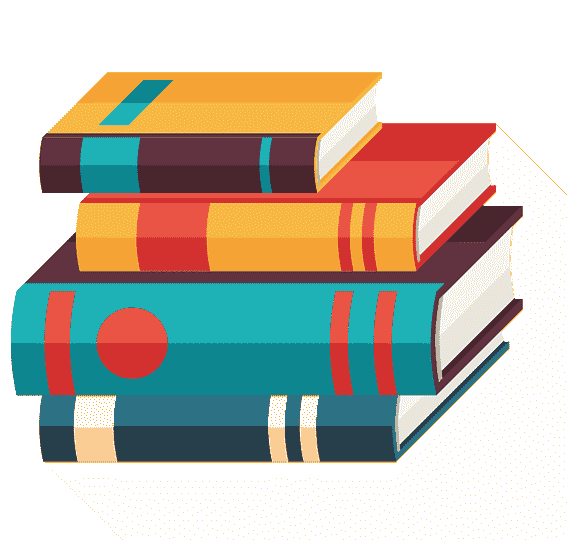 Literature
Literature

 Music
Music
 Russia
Russia
 Tajikistan
Tajikistan

 United Nations
United Nations
 Official languages
Official languages
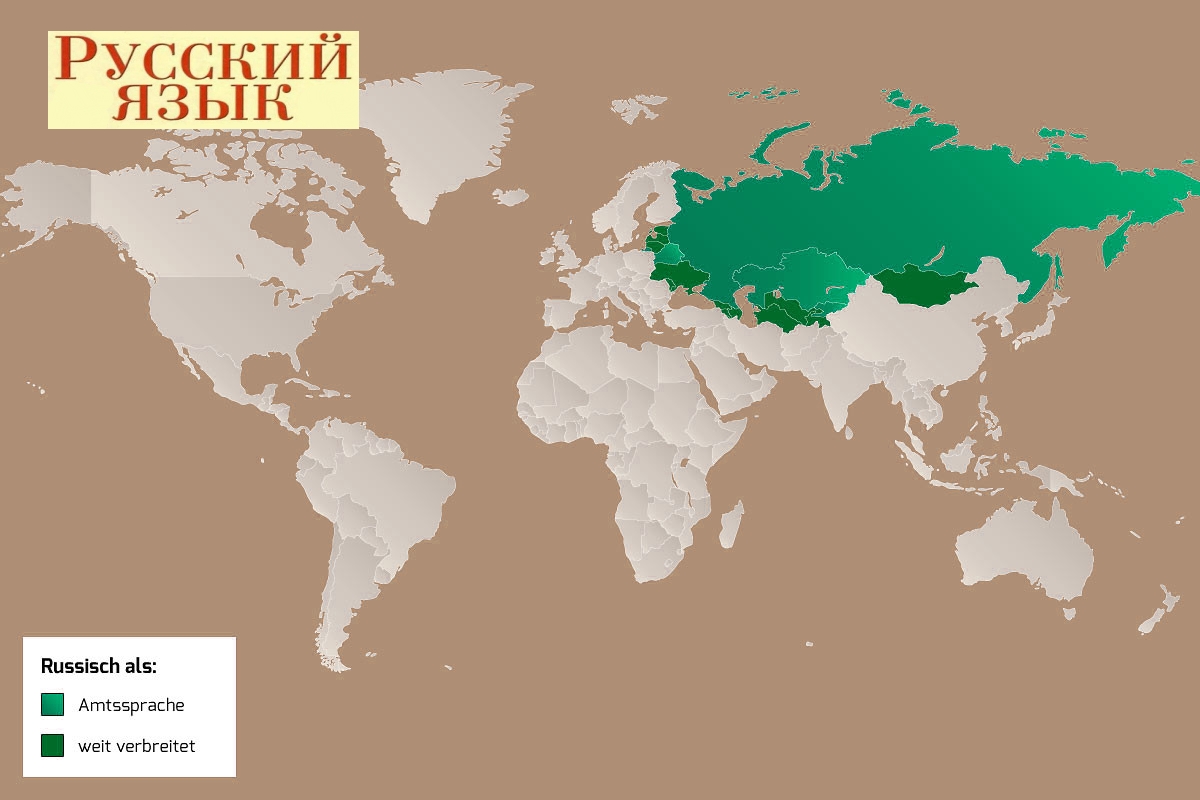
俄罗斯语(русский язык,罗马化:russkiy yazyk,发音:[ˈruskʲɪj jɪˈzɨk] (ⓘ)),通称俄语,属于斯拉夫语族的东斯拉夫语支,是斯拉夫语族中使用人数最多的语言,是俄罗斯、白俄罗斯、吉尔吉斯斯坦及哈萨克斯坦的官方语言,主要在俄罗斯等前苏联加盟共和国中使用,且在中国和华沙公约组织的成员国里曾经被学校广泛列为第一外语教学。俄文为联合国正式语文之一。在苏联时代,苏联加盟共和国和自治共和国非常强调俄语的重要性。虽然这些苏联的加盟共和国现在很多开始强调使用当地语言的重要性,在部分国家俄语已不再是官方语言,但俄语仍然是这些地区最广泛使用的共通语言。俄语属于印欧语系,是东斯拉夫语支中目前仍在使用的语言之一。目前发现最早的古东斯拉夫语文字是在十世纪的内容。俄语是欧亚大陆中分布区域广大的语言,也是斯拉夫语中最多人使用的语言。俄语也是欧洲最多人使用的母语,是俄罗斯、白俄罗斯、乌克兰1.44亿人的母语。
Die russische Sprache (Russisch, früher auch Großrussisch genannt; im Russischen: русский язык, [ˈru.skʲɪj jɪˈzɨk], deutsche Transkription: russki jasyk, wissenschaftliche Transliteration gemäß ISO 9:1968 russkij jazyk,[2] Ausspracheⓘ/?) ist eine Sprache aus dem slawischen Zweig der indogermanischen Sprachfamilie. Mit insgesamt etwa 250 Millionen Sprechern, davon ca. 150 Millionen Muttersprachlern, ist sie eine der meistverbreiteten Sprachen Europas. Sie gilt als eine der Weltsprachen. Sie spielt die Rolle der Lingua franca im postsowjetischen Raum und hat in mehreren seiner Staaten den Status einer Amtssprache.
Die eng mit dem Belarussischen, Ukrainischen und Russinischen verwandte Sprache wird mit dem kyrillischen Alphabet geschrieben, wobei es bestimmte russische Erscheinungsformen gibt. Die russische Standardsprache beruht auf den mittelrussischen Mundarten der Gegend um Moskau. Sie ist die Originalsprache zahlreicher bedeutender Werke der Weltliteratur. Die Wissenschaft, die sich mit der russischen Sprache und der umfangreichen russischen Literatur beschäftigt, heißt Russistik.
 *Track and field athletics
*Track and field athletics
 4x100 m Men
4x100 m Men
 *Track and field athletics
*Track and field athletics
 4x100 m Woman
4x100 m Woman
 *Track and field athletics
*Track and field athletics
 4x400 m Men
4x400 m Men
 Atomic bomb
Atomic bomb

 European Union
European Union
 History of the European Union
History of the European Union

 European Union
European Union
 *Founding states
*Founding states
 France
France

 Geography
Geography
 Leichtathletik-Weltmeisterschaften
Leichtathletik-Weltmeisterschaften
 2005 Helsinki
2005 Helsinki
 Leichtathletik-Weltmeisterschaften
Leichtathletik-Weltmeisterschaften
 2003 Saint-Denis
2003 Saint-Denis
 Leichtathletik-Weltmeisterschaften
Leichtathletik-Weltmeisterschaften
 2003 Saint-Denis
2003 Saint-Denis




 Military, defense and equipment
Military, defense and equipment
 Nuclear Weapon
Nuclear Weapon

 Mitglieder der NATO
Mitglieder der NATO

 Party and government
Party and government
 Group of the twenty most important industrial and emerging countries
Group of the twenty most important industrial and emerging countries

 Party and government
Party and government
 Group of Seven,G7
Group of Seven,G7

 States of Europe
States of Europe

 United Nations
United Nations
 United Nations Security Council
United Nations Security Council
 Hydrogen bomb
Hydrogen bomb

Frankreich ![]() [ˈfʁaŋkʁaɪ̯ç] (französisch [fʁɑ̃s], amtlich République française [ʁe.py.ˈblik fʁɑ̃.ˈsɛz], deutsch Französische Republik) ist ein demokratischer, interkontinentaler Einheitsstaat in Westeuropa mit Überseeinseln und -gebieten auf mehreren Kontinenten. Metropolitan-Frankreich, d. h. der europäische Teil des Staatsgebietes, erstreckt sich vom Mittelmeer bis zum Ärmelkanal und zur Nordsee sowie vom Rhein bis zum Atlantischen Ozean. Sein Festland wird wegen seiner Landesform als Hexagone (Sechseck) bezeichnet. Frankreich ist flächenmäßig das größte und nach Einwohnern (hinter Deutschland) das zweitgrößte Land der Europäischen Union. Es umfasst (nach Russland und der Ukraine) das drittgrößte Staatsgebiet in Europa. Paris ist die Hauptstadt und als Agglomeration mit dem Gemeindeverband Métropole du Grand Paris und den umliegenden Gebieten der Region Île-de-France größter Ballungsraum des Landes vor Lyon, Marseille, Toulouse und Lille.
[ˈfʁaŋkʁaɪ̯ç] (französisch [fʁɑ̃s], amtlich République française [ʁe.py.ˈblik fʁɑ̃.ˈsɛz], deutsch Französische Republik) ist ein demokratischer, interkontinentaler Einheitsstaat in Westeuropa mit Überseeinseln und -gebieten auf mehreren Kontinenten. Metropolitan-Frankreich, d. h. der europäische Teil des Staatsgebietes, erstreckt sich vom Mittelmeer bis zum Ärmelkanal und zur Nordsee sowie vom Rhein bis zum Atlantischen Ozean. Sein Festland wird wegen seiner Landesform als Hexagone (Sechseck) bezeichnet. Frankreich ist flächenmäßig das größte und nach Einwohnern (hinter Deutschland) das zweitgrößte Land der Europäischen Union. Es umfasst (nach Russland und der Ukraine) das drittgrößte Staatsgebiet in Europa. Paris ist die Hauptstadt und als Agglomeration mit dem Gemeindeverband Métropole du Grand Paris und den umliegenden Gebieten der Region Île-de-France größter Ballungsraum des Landes vor Lyon, Marseille, Toulouse und Lille.
Im 17. und 18. Jahrhundert hatte Frankreich eine europäische Führungsrolle und Vormachtstellung inne. Bedeutend war die politische und kulturelle Ausstrahlung: Die Hofhaltung Ludwigs XIV. wurde zum Vorbild absolutistischer Staaten in ganz Europa und die Französische Revolution mit der Erklärung der Menschen- und Bürgerrechte gab zusammen mit Okkupationen durch Napoleon Bonaparte in vielen Ländern den Auftakt zu der immer wieder von Rückschlägen unterbrochenen Entwicklung zur Demokratie. In Übersee baute Frankreich zweimal ein Kolonialreich auf. Das erste umfasste u. a. große Teile Nordamerikas und ging großenteils Mitte des 18. Jahrhunderts im Siebenjährigen Krieg verloren; das zweite mit Schwerpunkt in Afrika war im 19. und frühen 20. Jahrhundert das zweitgrößte der Welt. Im 21. Jahrhundert gilt Frankreich mit Deutschland als treibende Kraft der europäischen Integration.
Die Französische Republik wird in ihrer Verfassung als unteilbar, laizistisch, demokratisch und sozial erklärt.[7] Ihr Grundsatz lautet: „Regierung des Volkes durch das Volk und für das Volk“. Frankreich steht auf Rang 26 des Index der menschlichen Entwicklung (2019) der Vereinten Nationen.[8] Gemessen am nominalen Bruttoinlandsprodukt ist es die sechstgrößte Volkswirtschaft der Welt.[5] Die Kaufkraft pro Einwohner betrug 2016 19.254 Euro (zum Vergleich: Deutschland 21.879 Euro, Großbritannien 21.141 Euro).[9] Lebensstandard, Bildungsgrad und durchschnittliche Lebenserwartung[10] gelten als hoch. Als meistbesuchtes Land der Welt empfängt Frankreich rund 83 Millionen ausländische Touristen pro Jahr.[11][12]
Frankreich unterhält die drittstärksten Streitkräfte innerhalb der NATO und das größte Heer der Europäischen Union. Es ist eines der fünf ständigen Mitglieder des UN-Sicherheitsrates und hatte 2010 als Atommacht die weltweit dritthöchste Anzahl an Kernwaffen.[13] Das Land ist Gründungsmitglied der Europäischen Union und der Vereinten Nationen, Mitglied der Frankophonie, der G7, der G20, der NATO, der Organisation für wirtschaftliche Zusammenarbeit und Entwicklung (OECD), der Welthandelsorganisation (WTO) und der Lateinischen Union.
法兰西共和国(法语:République française [ʁepyblik fʁɑ̃sɛz]),通称法国(法语:France [fʁɑ̃s] ![]() 聆听),是本土位于西欧并具有海外大区及领地[注 16]的主权国家,自法兰西第五共和国建立以来实行单一制与半总统制,首都为欧洲大陆最大的文化与金融中心巴黎。该国本土由地中海一直延伸至英吉利海峡及北海,并由莱茵河一直延伸至大西洋,整体呈六角状。海外领土包括南美洲的法属圭亚那及分布于大西洋、太平洋和印度洋的诸岛屿。全国共分为18个大区,其中5个位于海外。法国与西班牙及摩洛哥为同时拥有地中海及大西洋海岸线的三个国家。法国的国土面积全球第四十一位,但却为欧盟及西欧国土面积最辽阔的国家,欧洲面积第三大国家。
聆听),是本土位于西欧并具有海外大区及领地[注 16]的主权国家,自法兰西第五共和国建立以来实行单一制与半总统制,首都为欧洲大陆最大的文化与金融中心巴黎。该国本土由地中海一直延伸至英吉利海峡及北海,并由莱茵河一直延伸至大西洋,整体呈六角状。海外领土包括南美洲的法属圭亚那及分布于大西洋、太平洋和印度洋的诸岛屿。全国共分为18个大区,其中5个位于海外。法国与西班牙及摩洛哥为同时拥有地中海及大西洋海岸线的三个国家。法国的国土面积全球第四十一位,但却为欧盟及西欧国土面积最辽阔的国家,欧洲面积第三大国家。
今日之法国本土于铁器时代由高卢人(凯尔特人的一支)征服,前51年又由罗马帝国吞并。486年法兰克人(日耳曼人的一支)又征服此地,其于该地域建立的早期国家最终发展成为法兰西王国。法国至中世纪末期起成为欧洲大国,国力于19-20世纪时达致巅峰,建立了世界第二大殖民帝国,亦为20世纪人口最稠密的国家[来源请求],现今则是众多前殖民地的首选移民国[8]。在漫长的历史中,法国培养了不少对人类发展影响深远的著名哲学家、文学家与科学家,亦为文化大国,具有第四多的世界遗产[9]。
フランス共和国(フランスきょうわこく、フランス語: République française、通称:フランス、France)は、西ヨーロッパ、カリブ、太平洋およびインド洋に位置する共和制国家。首都はパリ。
フランス・メトロポリテーヌ(本土)は地中海からイギリス海峡及び北海へ、ライン川から大西洋へと広がる。この他世界各地に海外地域および領土を有する。
なお、フランス・メトロポリテーヌ周辺は北東がドイツとベルギーとルクセンブルク、東をスイスとイタリア、南にスペインと国境を接している。
フランスは国際連合安全保障理事会常任理事国であり、G7・G20、欧州評議会、世界貿易機関、経済協力開発機構、北大西洋条約機構、パリクラブおよびフランコフォニー国際機関における主要なメンバーである。国際政治においてはこれらの理由から、政治・経済・文化において強力な影響を及ぼす列強の一角に数えられており、ヨーロッパにおける「ビッグ4」の1つでもある。
核拡散防止条約により核兵器の保有を認められた5つの公式核保有国の1つであり、その他にアメリカ合衆国を除けば世界で唯一の原子力空母「シャルル・ド・ゴール」や原子力潜水艦を保有しており、強力な軍事力を持っている。
GDPは名目GDP世界第7位かつ購買力平価で世界第10位・ユーロ圏ではドイツに次ぐ第2位の経済力を有する国であり、高い人間開発指数を持つ先進国として知られる。数多くの世界遺産を抱えており、世界で最も観光客の多い国の1つである。
歴史的にはデカルト、モンテスキュー、ルソー、サルトルといった哲学者やマリ・キュリー、パストゥールといった科学者、モネ、セザンヌ、ゴーギャン、クールベ、ドラクロワといった芸術家の故国もしくは活躍の舞台であり、また百年戦争やフランス革命、ナポレオン戦争といった歴史的事象の主要な舞台であった。
France (French: [fʁɑ̃s] ![]() ), officially the French Republic (French: République française),[1] is a transcontinental country spanning Western Europe and overseas regions and territories in the Americas and the Atlantic, Pacific and Indian Oceans.[XIII] Including all of its territories, France has twelve time zones, the most of any country. Its metropolitan area extends from the Rhine to the Atlantic Ocean and from the Mediterranean Sea to the English Channel and the North Sea; overseas territories include French Guiana in South America, Saint Pierre and Miquelon in the North Atlantic, the French West Indies, and several islands in Oceania and the Indian Ocean. Due to its several coastal territories, France has the largest exclusive economic zone in the world. France borders Belgium, Luxembourg, Germany, Switzerland, Monaco, Italy, Andorra and Spain in Europe, as well as the Netherlands, Suriname and Brazil in the Americas. Its eighteen integral regions (five of which are overseas) span a combined area of 643,801 km2 (248,573 sq mi) and over 67 million people (as of May 2021).[13] France is a unitary semi-presidential republic with its capital in Paris, the country's largest city and main cultural and commercial centre; other major urban areas include Lyon, Marseille, Toulouse, Bordeaux, Lille and Nice.
), officially the French Republic (French: République française),[1] is a transcontinental country spanning Western Europe and overseas regions and territories in the Americas and the Atlantic, Pacific and Indian Oceans.[XIII] Including all of its territories, France has twelve time zones, the most of any country. Its metropolitan area extends from the Rhine to the Atlantic Ocean and from the Mediterranean Sea to the English Channel and the North Sea; overseas territories include French Guiana in South America, Saint Pierre and Miquelon in the North Atlantic, the French West Indies, and several islands in Oceania and the Indian Ocean. Due to its several coastal territories, France has the largest exclusive economic zone in the world. France borders Belgium, Luxembourg, Germany, Switzerland, Monaco, Italy, Andorra and Spain in Europe, as well as the Netherlands, Suriname and Brazil in the Americas. Its eighteen integral regions (five of which are overseas) span a combined area of 643,801 km2 (248,573 sq mi) and over 67 million people (as of May 2021).[13] France is a unitary semi-presidential republic with its capital in Paris, the country's largest city and main cultural and commercial centre; other major urban areas include Lyon, Marseille, Toulouse, Bordeaux, Lille and Nice.
Inhabited since the Palaeolithic era, the territory of Metropolitan France was settled by Celtic tribes known as Gauls during the Iron Age. Rome annexed the area in 51 BC, leading to a distinct Gallo-Roman culture that laid the foundation of the French language. The Germanic Franks arrived in 476 and formed the Kingdom of Francia, which became the heartland of the Carolingian Empire. The Treaty of Verdun of 843 partitioned the empire, with West Francia becoming the Kingdom of France in 987.
In the High Middle Ages, France was a powerful but highly decentralised feudal kingdom in which the king's authority was barely felt. King Philip II achieved remarkable success in the strengthening of royal power and the expansion of his realm, defeating his rivals and doubling its size. By the end of his reign, the kingdom had emerged as the most powerful state in Europe. From the mid-14th to the mid-15th century, France was plunged into a series of dynastic conflicts for the French throne, collectively known as the Hundred Years' War, and a distinct French identity emerged as a result. The French Renaissance saw art and culture flourish, various wars with rival powers, and the establishment of a global colonial empire, which by the 20th century would become the second-largest in the world.[14] The second half of the 16th century was dominated by religious civil wars between Catholics and Huguenots that severely weakened the country. But France once again emerged as Europe's dominant cultural, political and military power in the 17th century under Louis XIV following the Thirty Years' War.[15] Inadequate economic policies, an inequitable taxation system as well as endless wars (notably a defeat in the Seven Years' War and costly involvement in the American War of Independence), left the kingdom in a precarious economic situation by the end of the 18th century. This precipitated the French Revolution of 1789, which overthrew the absolute monarchy, replaced the Ancien Régime with one of history's first modern republics and produced the Declaration of the Rights of Man and of the Citizen, which expresses the nation's ideals to this day.
France reached its political and military zenith in the early 19th century under Napoleon Bonaparte, subjugating much of continental Europe and establishing the First French Empire. The French Revolutionary and Napoleonic Wars shaped the course of European and world history. The collapse of the empire initiated a period of relative decline, in which France endured a tumultuous succession of governments until the founding of the French Third Republic during the Franco-Prussian War in 1870. Subsequent decades saw a period of optimism, cultural and scientific flourishing, as well as economic prosperity known as the Belle Époque. France was one of the major participants of World War I, from which it emerged victorious at great human and economic cost. It was among the Allied powers of World War II, but was soon occupied by the Axis in 1940. Following liberation in 1944, the short-lived Fourth Republic was established and later dissolved in the course of the Algerian War. The current Fifth Republic was formed in 1958 by Charles de Gaulle. Algeria and most French colonies became independent in the 1960s, with the majority retaining close economic and military ties with France.
France retains its centuries-long status as a global centre of art, science and philosophy. It hosts the fifth-largest number of UNESCO World Heritage Sites and is the world's leading tourist destination, receiving over 89 million foreign visitors in 2018.[16] France is a developed country with the world's seventh-largest economy by nominal GDP and ninth-largest by PPP; in terms of aggregate household wealth, it ranks fourth in the world.[17] France performs well in international rankings of education, health care, life expectancy and human development.[18][19] It remains a great power in global affairs,[20] being one of the five permanent members of the United Nations Security Council and an official nuclear-weapon state. France is a founding and leading member of the European Union and the Eurozone,[21] as well as a key member of the Group of Seven, North Atlantic Treaty Organization (NATO), Organisation for Economic Co-operation and Development (OECD) and La Francophonie.
La France (Écouter), en forme longue depuis 1875 la République française (Écouter), est un État souverain transcontinental dont le territoire métropolitain est situé en Europe de l'Ouest et dont le territoire ultramarin est situé dans les océans Indien, Atlantique et Pacifique ainsi qu'en Amérique du Sud. Il s'agit de l'unique pays au monde à s'étendre sur treize fuseaux horaires. Le pays a des frontières terrestres avec la Belgique, le Luxembourg, l'Allemagne, la Suisse, l'Italie, l'Espagne et les deux principautés d'Andorre et de Monaco en Europe, auxquelles s'ajoutent les frontières terrestres avec le Brésil, le Suriname et les Pays-Bas aux Amériques. La France dispose d'importantes façades maritimes sur l'Atlantique, la Méditerranée, le Pacifique et l'océan Indien, lui permettant de bénéficier de la plus vaste zone économique exclusive du monde6.
La France est une république constitutionnelle unitaire ayant un régime semi-présidentiel. La devise de la République est depuis 1875 « Liberté, Égalité, Fraternité » et son drapeau est constitué des trois couleurs nationales : bleu, blanc, rouge. Son hymne national est La Marseillaise, chant patriotique hérité de la Révolution française. Son principe constitutif est la démocratie : le « gouvernement du peuple, par le peuple et pour le peuple ». Elle a pour capitale Paris et pour langue officielle le français depuis 1539, remplaçant le latin. Ses monnaies sont l'euro depuis 2002 dans la majeure partie du pays et le franc Pacifique dans ses territoires de l'océan Pacifique.
La France s'appelle ainsi depuis 1214, lorsque les troupes du roi Philippe Auguste battent celles de l’empereur germanique à Bouvines. La France tire son nom des
